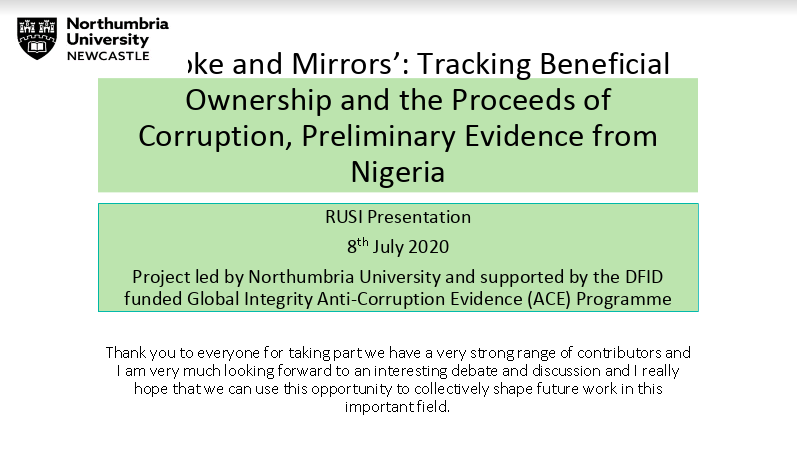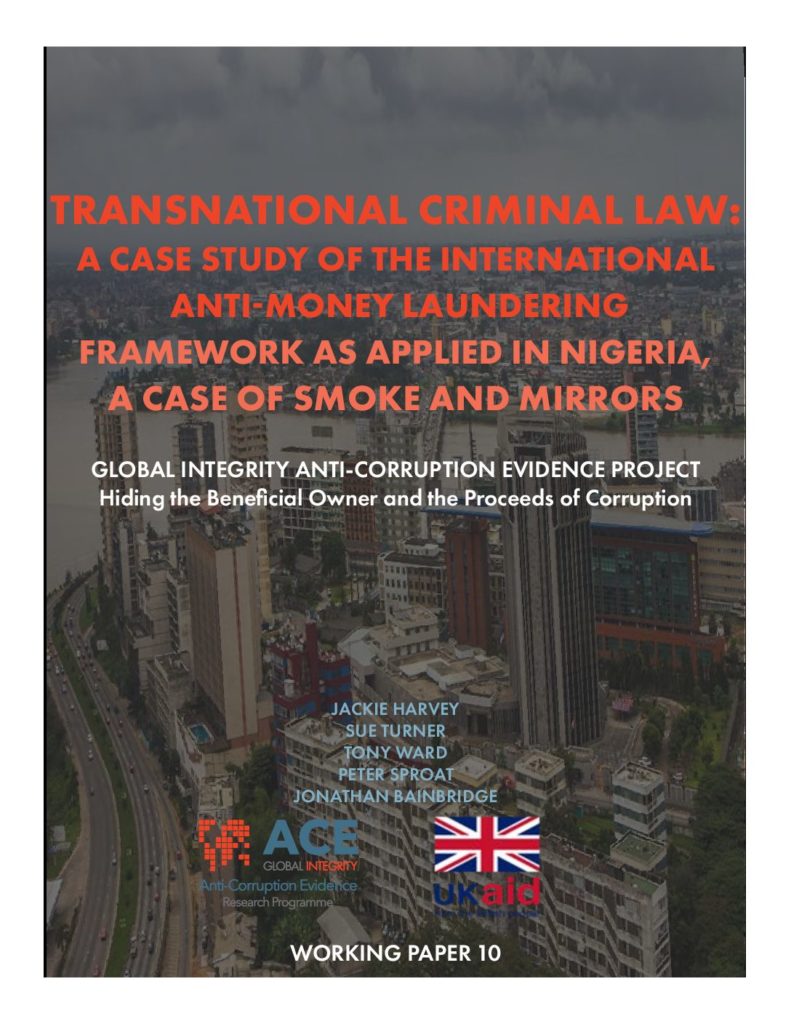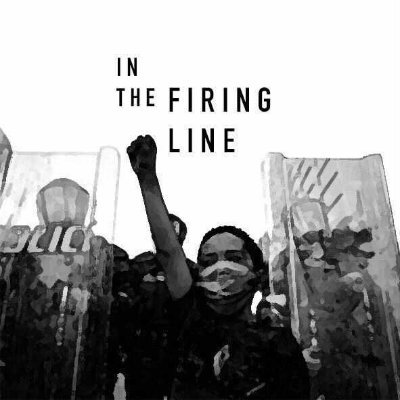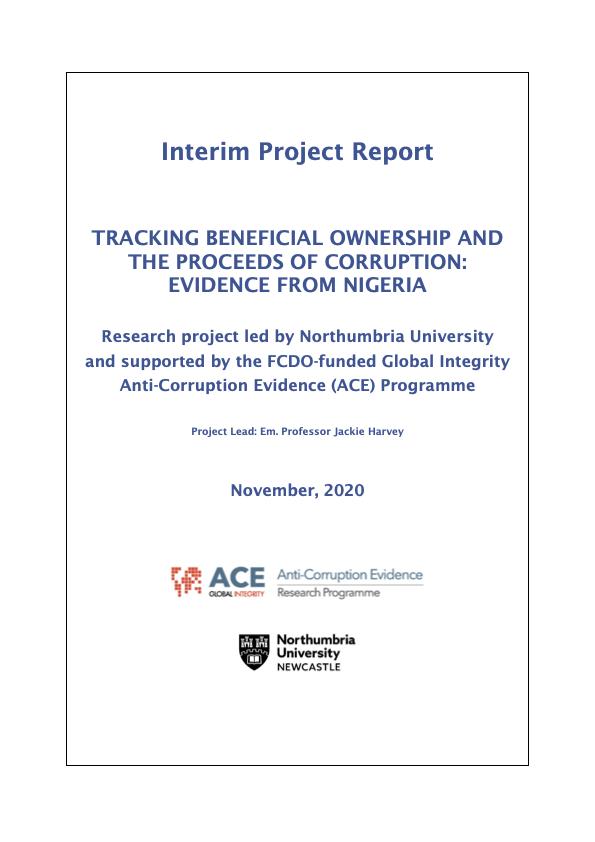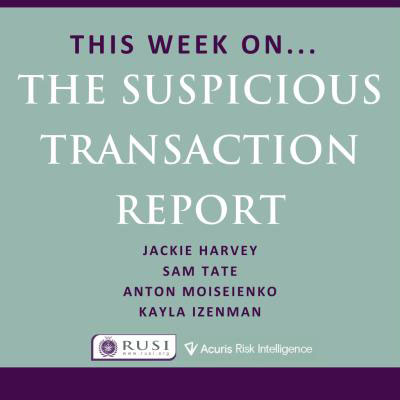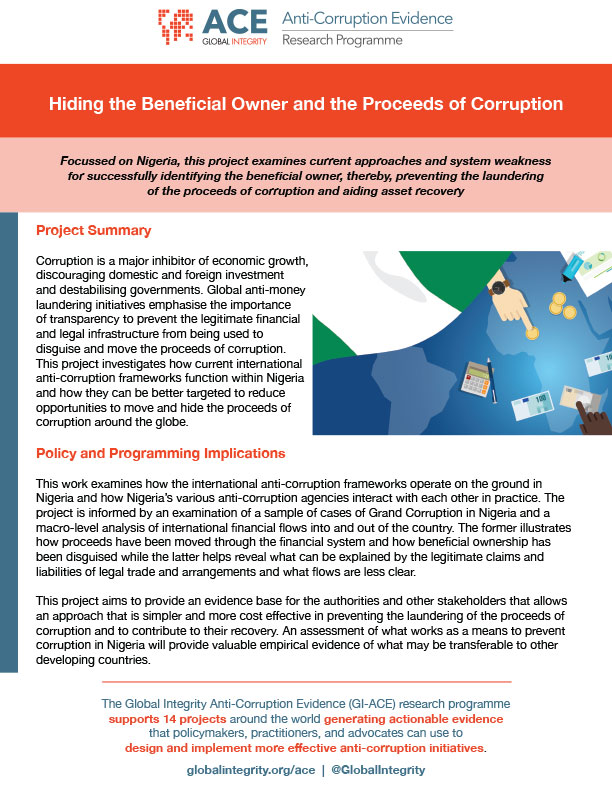Hiding the beneficial owner and the proceeds of corruption
Focussed on Nigeria, this project examines current approaches and system weakness for successfully identifying the beneficial owner, thereby, preventing the laundering of the proceeds of corruption and aiding asset recovery.
Click here for the Project One-Pager
To learn more about this project, contact Principal Investigator Jackie Harvey.
Project Summary
Corruption is a major inhibitor of economic growth, discouraging domestic and foreign investment and destabilising governments. Global anti-money laundering initiatives emphasise the importance of transparency to prevent the legitimate financial and legal infrastructure from being used to disguise and move the proceeds of corruption. This project investigates how current international anti-corruption frameworks function within Nigeria and how they can be better targeted to reduce opportunities to move and hide the proceeds of corruption around the globe.
Policy and Programming Implications
This work examines how the international anti-corruption frameworks operate on the ground in Nigeria and how Nigeria’s various anti-corruption agencies interact with each other in practice. The project is informed by an examination of a sample of cases of Grand Corruption in Nigeria and a macro-level analysis of international financial flows into and out of the country. The former illustrates how proceeds have been moved through the financial system and how beneficial ownership has been disguised while the latter helps reveal what can be explained by the legitimate claims and liabilities of legal trade and arrangements and what flows are less clear.
This project aims to provide an evidence base for the authorities and other stakeholders that allows an approach that is simpler and more cost effective in preventing the laundering of the proceeds of corruption and to contribute to their recovery. An assessment of what works as a means to prevent corruption in Nigeria will provide valuable empirical evidence of what may be transferable to other developing countries.
Research Question
Can improvements be made to the identification and tracking of Beneficial Ownership to increase likelihood of recovering the proceeds of corruption?
Methodology
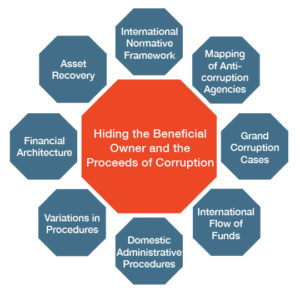 The collaborative, mixed methods, and cross-disciplinary project comprises a series of work packages. Each part of the project provides information from a different perspective, all of which contribute to the evidence base that will enable us to:
The collaborative, mixed methods, and cross-disciplinary project comprises a series of work packages. Each part of the project provides information from a different perspective, all of which contribute to the evidence base that will enable us to:
- Contextualise the international normative framework within Nigeria;
- Provide a statistical analysis of international financial flows determining those that are explainable;
- Understand how anti-corruption agencies operate, including their ability to access and share information;
- Identify and share apparent gaps between international expectations and operational reality;
- Provide a sample of illustrative typologies for Nigeria-based on known cases of grand corruption; and
- Recommend where resources could be focussed for greater impact in light of findings and existing operational constraints.
Research Team Members
- Jackie Harvey, Professor, Newcastle Business School, Northumbria University
- Peter Sproat, Senior Lecturer, Newcastle Business School, Northumbria University
- Alan Doig, Visiting Professor, Newcastle Business School, Northumbria University
- Sinan Gonul, Senior Lecturer, Newcastle Business School, Northumbria University
- Tony Ward, Professor, Northumbria Law School, Northumbria University
- Sue Turner, Senior Lecturer, Northumbria Law School, Northumbria University
- Christopher Mitford, Senior Lecturer, Northumbria Law School, Northumbria University
- Abdullahi Shehu, Managing Director, AML/CFT Consultancy Real Services Ltd. (Abuja)
- Abdullahi Bello, Managing Consultant, Abdubel Consulting Ltd. (Abuja)
- Petrus C. van Duyne, Visiting Professor, Northumbria University and University of Utrecht
- Jan van Koningsveld, Director of the Offshore Knowledge Centre (Netherlands)
- Sam Sittlington, Director, Fraud Company














